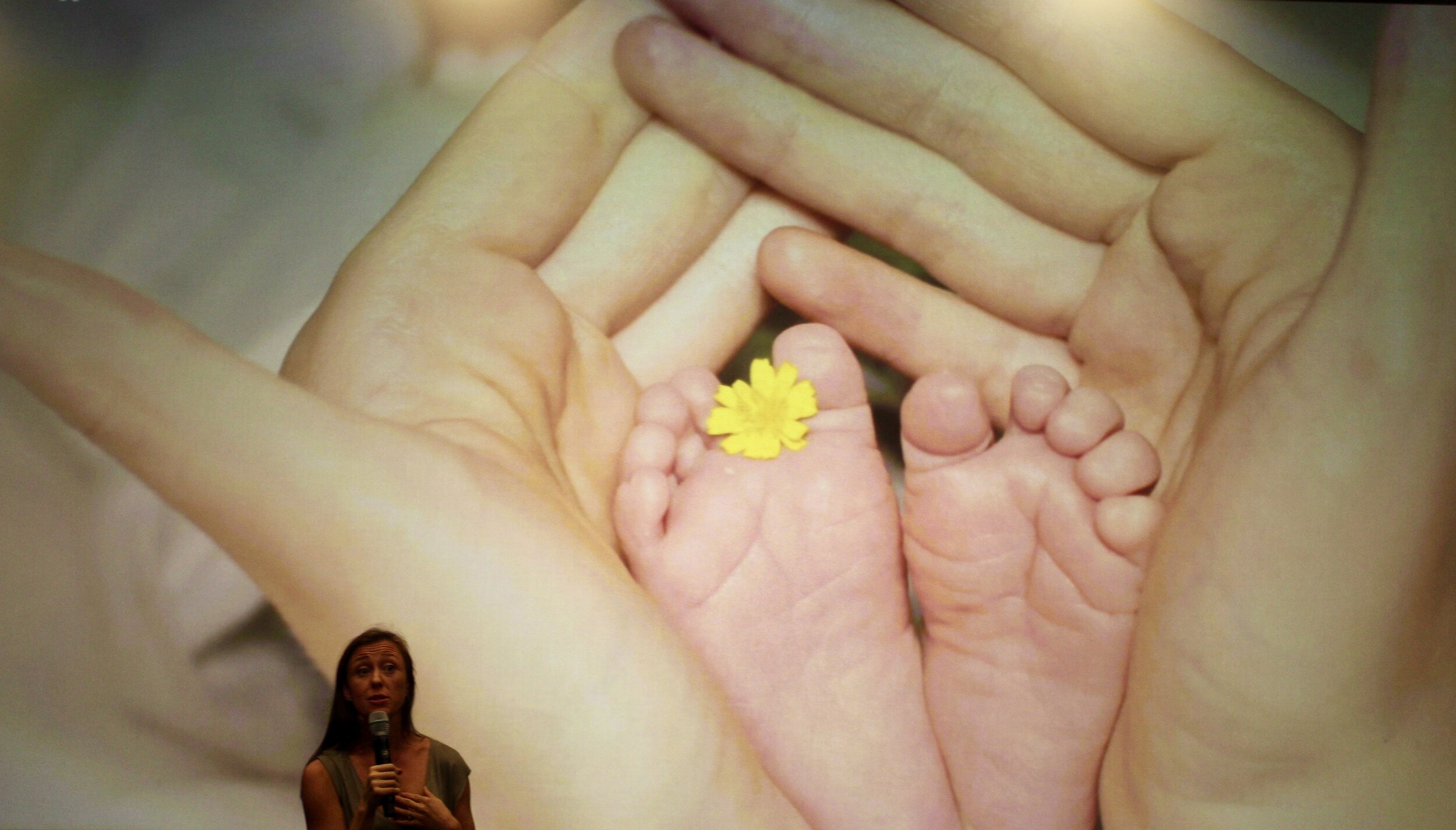Green Screen: The Earthing Movie
“The Earthing Movie” co-filmmaker Rebecca Tickell stands in front of a scene from her documentary. (Mariely Alaniz/The Corsair).
As students make their way inside The Center of Media and Design’s (CMD) auditorium wearing all sorts of footwear on Sept. 23, guest speakers and award-winning filmmakers Josh and Rebecca Tickell chose to welcome the crowd, barefoot.
While the idea of walking barefoot in public can be mind-boggling to some, the practice can actually provide loads of physiological and psychological health benefits. The Tickell duo's documentary, “The Earthing Movie," serves to educate viewers on these potential advantages. The documentary was shown in the Center for Media and Design auditorium as a part of Film Studies Adjunct Professor Sheila Laffey's course "Green Screen: Films on the Environment and Transformation."
The concept of earthing, or grounding, was discovered by Clint Ober after having a near-death experience. The definition is found within the word itself, as earthing relates to connecting the soles of one’s feet firmly on the ground. This allows humans to have a connection with Mother Earth that has been impacted by the invention of rubber soles for tennis shoes, as stated in the documentary.
By establishing human contact with the Earth’s natural energy, the film claims that electrons provided by the planet are believed to serve as antioxidants which are then released throughout the human body. The film claims that studies have shown that this practice reduces inflammation associated with chronic illnesses such as cancer, arthritis, and even brain inflammation related to depression and anxiety.
Throughout the film, various case studies involving people from all walks of life are documented by Josh and Rebecca to reinstate the fact that the concept of earthing has benefited a wide range of people with mild to serious health conditions.
“All this time we’ve been trying to save the planet, turns out that the planet can save us quite literally," said Rebecca Tickell during the Q&A following the screening, which was held after by Professor Laffey.
Film student Dawn Smith, who is enrolled in Professor Laffey's course, shared an intimate story regarding how grounding has improved her health.
“As a child I used to walk around barefoot a lot and I feel like that has, in hindsight, significantly helped with my chronic health issues … with my heart problem, with my respiratory issues, with my … all my other things," said Smith.
Touched by Smith’s story, Rebecca gifts her with an earthing mat to continue benefiting from the groundbreaking phenomenon.
This semester's series will host three more film screenings: "Bringing It Home" on October 7, "Free Willy" on October 28, and "Poisoning Paradise" on November 4. All will be screened in the Center for Media and Design Auditorium.

